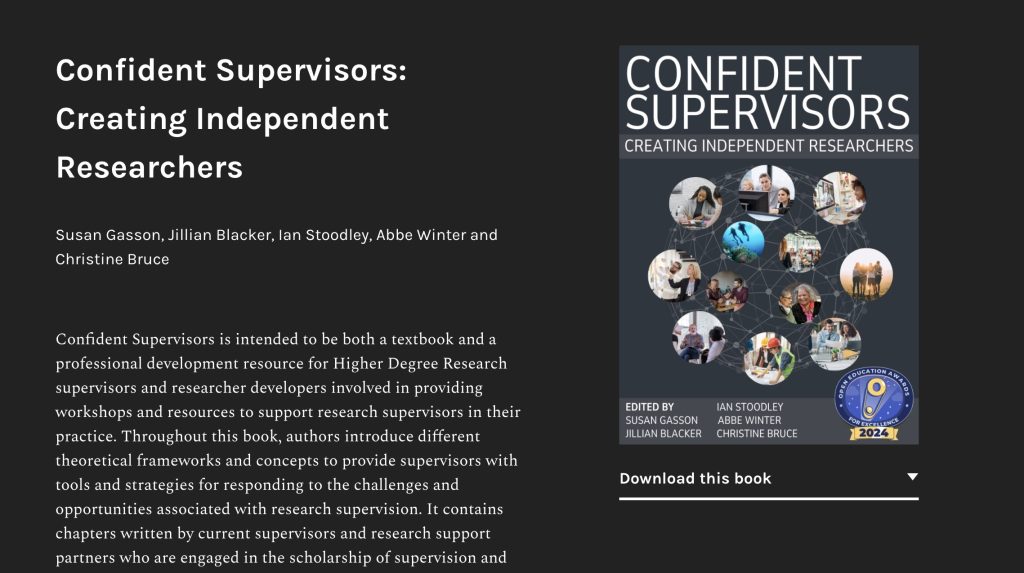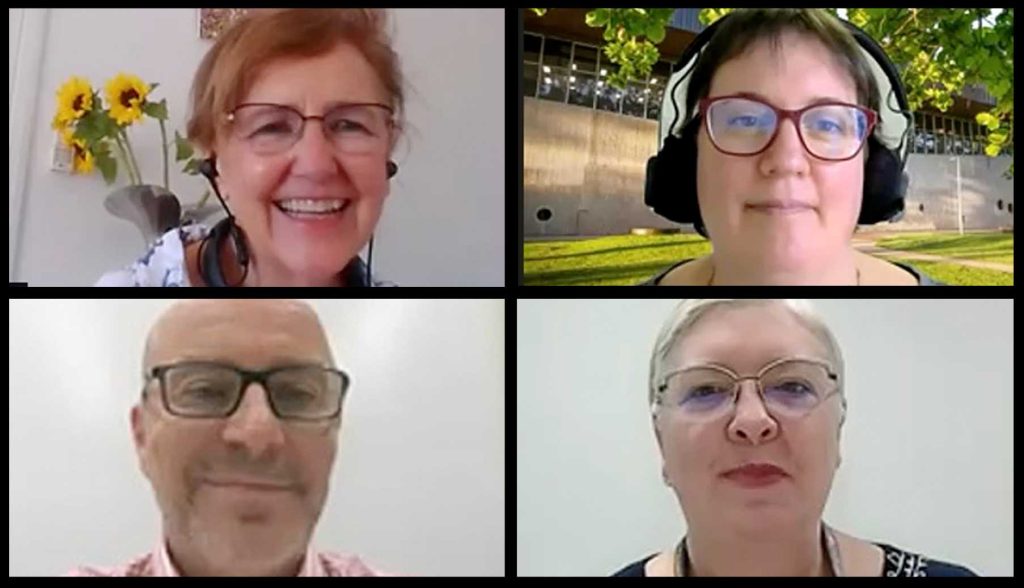After 12 years of dedication to OE Global and specifically as the Director of CCCOER, Una Daly is embarking on a personal and well-earned “re-wiring” (Una’s term for it).
Una Daly has directed the Community College Consortium for Open Educational Resources (CCCOER), since 2011. CCCOER is a regional Open Education Global (OEGlobal) hub that promotes open educational policies, practices, and resources.
Una played a pivotal role in developing and supporting the 101 member community colleges that hail from 35 states in the USA and two provinces in Canada. Una has driven the CCCOER vision to raise awareness and encourage the adoption of open educational initiatives throughout the region. Una’s stewardship of CCCOER has led to innovative support programs for faculty in their open education application through such initiatives as CCCOER’s monthly webinars and the former Regional Leaders of Open Education (RLOE) program.
Her dedication to equity, diversity, and inclusion (EDI) within the community college system has seen the development of innovative programs such as the Open For AntiRacism (OFAR) and the Summer EDI Book Club, among others. She has been dedicated to walking the talk by implementing internal additions to CCCOER’s advisory structures and creating an EDI committee to guide EDI programs.
Collective action, partnerships, and collaboration to activate change towards open education change have been an effective part of Una’s strategy for CCCOER. This has resulted in the California Consortium for Equitable Change in Hispanic-Serving Institutions OER Project, the California Zero Textbook Cost Degree initiative, and the Achieving The Dream OER Degree program.
Listen to the history of CCCOER from Una’s perspective and the thoughts of incoming program director Heather Blicher in the OEG Voices podcast, Looking Back and into the Future of CCCOER with Una Daly and Heather Blicher.
Before joining OEGlobal, Una was director of College Open Textbooks and the ePortfolio Coordinator at the California Virtual Campus and Foothill College, where she taught in the Computer Technology Information Systems department. She holds a Masters in Teaching and Learning with Technology from Santa Clara University and an @One Online Teaching Certificate. Her initial career was in the computer industry, where she was a software engineer and manager at Apple, 3Com Corporation, and Motorola.
We will miss you Una! We know that the CCCOER community will do too!
The CCCOER Community’s wishes for Una
The staff at OEGlobal have set up a KudoBoard to share our experiences of Una and our wishes for her rewired future. Here are a few of the snippets from this board.
“Thanks for being a guiding light in the ever-changing world of OER. You were there facilitating every CCCOER webinar when I first started focusing on open and you grew and developed the community that I depended on to develop my work. Now I’m in the unique position to continue your work and I won’t let you down! Many hugs to you for the times you reached out and offered me the chance to be on a panel, a webinar, or write a blog post. It meant the world to me when you feel so isolated in certain positions. Enjoy your re-wirement and I hope to visit you on the West coast one day soon!”
Heather Blicher on Una’s Farewell KudoBoard
“Una, how will we feel your absence when your presence is so intrinsic to the field of Open Education that you helped to create? The presence of care, consideration, and kindness. The presence of wit and wisdom and whimsy. The creativity that arises from studying math and computer science. The workshops that once attracted single attendees and are now standing room only. The giant leaps that come from dreaming big. The goodness and kindness, as well as the stubbornness and determination, that you embody are so firmly the foundations of the field, that your absence won’t cause a collapse. Your presence will live on in thousands of future students who find a place in education because the door is open more widely, who see themselves in their learning materials, who are welcomed and supported by teachers who co-create with them, and who are inspired to learn their whole lives long. You will be present with us and with future generations of learners, in our minds and in our hearts.”
James Glapa-Grossklag on Una’s Farewell KudoBoard
“You have such a gift of bringing people together to share their strengths – which you did so beautifully in bringing the professional learning network around OER that CCCOER is. The relationships that you fostered, the knowledge you shared and the projects you have led, have created the foundation of much of OER in the community colleges. I feel so fortunate to be able to have worked with you but even more importantly to be able to call you a friend.”
Lisa Young on Una’s Farewell KudoBoard
“It was wonderful to work with you at OE Global! Thank you for all of your support and guidance for the RLOE program, and everything you built for the CCCOER. You have truly set the stage for the CCCOER to move into a bright and creative future!”
Karen Cangialosi on Una’s Farewell KudoBoard
Shinta Hernandez on Una’s Farewell KudoBoard“You have made an indelible mark on CCCOER and the broader open education community. You have been a source of inspiration for so many. I am deeply grateful that I got a chance to work closely with you these last few years on the CCCOER Executive Council. I’m thrilled that we saw one another again in Edmonton. Wishing you all the happiness and fulfillment in the next chapter of your life. With deep gratitude,”
Share your wishes for Una’s Re-wirement!
Please add your experiences and stories of Una on the Farewell KudoBoard.



